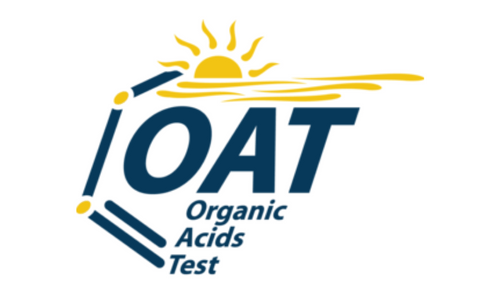FUNCTIONAL TESTING
"Test! Don't guess!"
Heidi is qualified to run and analyze many different kinds of functional tests. Testing is the only way to get a snapshot of what is really going on inside of the body. Running a test is easy, but knowing how to use the results is what Heidi specializes in. She will recommend the most strategic testing for those in Private Functional Medicine packages and then writes up a full report so clients know what their test results mean and what they need to do about it.
Stool Tests

by Diagnostic Solutions
The Gastrointestinal Microbial Assay Plus (GI-MAP) is an innovative clinical tool that measures gastrointestinal microbiota DNA from a single stool sample with state-of-the-art, quantitative polymerase chain reaction (qPCR) technology. The GI-MAP was designed to detect microbes that may be disturbing normal microbial balance or contributing to illness as well as indicators of digestion, absorption, inflammation, and immune function.

by Doctors Data
The GI360™ Profile is an innovative, comprehensive and clinically-applicable stool profile, utilizing multiplex PCR molecular technology coupled with growth-based culture and ID by MALDI-TOF, sensitive biochemical assays and microscopy to detect and assess the status of pathogens, viruses, parasites and bacteria that may be contributing to acute or chronic gastrointestinal symptoms and disease.

by Great Plains
The Great Plains Laboratory, LLC offers a urine test for glyphosate and we are also now testing water samples. Glyphosate is the world’s most widely produced herbicide and is the primary toxic chemical in Roundup™, as well as in many other herbicides. In addition, it is a broad-spectrum herbicide that is used in more than 700 different products from agriculture and forestry to home use. Glyphosate was introduced in the 1970s to kill weeds by targeting the enzymes that produce the amino acids tyrosine, tryptophan, and phenylalanine.

by Genova Diagnostics
The GI Effects Comprehensive Stool Profile can reveal important information about the root cause of many common gastrointestinal symptoms such as gas, bloating, indigestion, abdominal pain, diarrhea, and constipation. This stool analysis utilizes biomarkers such as Calprotectin to differentiate between Inflammatory Bowel Disease (IBD) and Irritable Bowel Syndrome. In addition, the GI Effects test can be used to evaluate patients with a clinical history that suggests a gastrointestinal infection or dysbiosis.
Hormone Tests

by Genova Diagnostics
The GI Effects Comprehensive Stool Profile can reveal important information about the root cause of many common gastrointestinal symptoms such as gas, bloating, indigestion, abdominal pain, diarrhea, and constipation. This stool analysis utilizes biomarkers such as Calprotectin to differentiate between Inflammatory Bowel Disease (IBD) and Irritable Bowel Syndrome. In addition, the GI Effects test can be used to evaluate patients with a clinical history that suggests a gastrointestinal infection or dysbiosis.

by Genova Diagnostics
The GI Effects Comprehensive Stool Profile can reveal important information about the root cause of many common gastrointestinal symptoms such as gas, bloating, indigestion, abdominal pain, diarrhea, and constipation. This stool analysis utilizes biomarkers such as Calprotectin to differentiate between Inflammatory Bowel Disease (IBD) and Irritable Bowel Syndrome. In addition, the GI Effects test can be used to evaluate patients with a clinical history that suggests a gastrointestinal infection or dysbiosis.

by Doctors Data
SIgA is most often measured in feces or saliva. Measuring sIgA in feces can reveal information about gut immunity, inflammation, recent or current infections, and potential acute or chronic stress generally associated with GALT (gut-associated lymphoid tissue). SIgA measured in the saliva primarily provides insight into the body’s stress response, however there is some evidence that activated B cells can migrate from GALT to salivary glands, which could potentially demonstrate systemic inflammation and possibly link GI pathology via salivary sampling.
Metabolamic Tests

by Diagnostic Solutions
The OMX ™ Organic Metabolomics test from Diagnostic Solutions Laboratory evaluates urine and plasma metabolites—including organic acids, amino acids, and other key compounds—to assist practitioners in unraveling their patient’s metabolic pathways, revealing their unique Metabolic Signature.
Using a systems-biology approach, OMX assesses biomarkers that go beyond the traditional lists of metabolites. This test enables practitioners to see a patient’s larger health picture by deciphering and connecting perturbations of key metabolic pathways and analytes, allowing for truly personalized therapeutic support.

by Great Plains
The Organic Acids Test (OAT) offers a comprehensive metabolic snapshot of a patient’s overall health with 76 markers. It provides an accurate evaluation of intestinal yeast and bacteria. Abnormally high levels of these microorganisms can cause or worsen behavior disorders, hyperactivity, movement disorders, fatigue and immune function. Many people with chronic illnesses and neurological disorders often excrete several abnormal organic acids in their urine. The cause of these high levels could include oral antibiotic use, high sugar diets, immune deficiencies, acquired infections, as well as genetic factors.
Nutrient Tests

by Genova Diagnostics
NutrEval FMV® (First Morning Void) test identifies key nutritional deficiencies. The NutrEval FMV evaluates overall nutritional status to determine personalized supplementation needs for antioxidants, B-vitamins, minerals, essential fatty acids, amino acids, digestive support, and other select nutrients.
The NutrEval FMV is an advanced diagnostic tool to guide nutritional therapies, often augmenting and speeding recovery of complex chronic conditions. Select genomics biomarkers may be added to the profile for enhanced personalization of therapies.

by Trace Elements
The Organic Acids Test (OAT) offers a comprehensive metabolic snapshot of a patient’s overall health with 76 markers. It provides an accurate evaluation of intestinal yeast and bacteria. Abnormally high levels of these microorganisms can cause or worsen behavior disorders, hyperactivity, movement disorders, fatigue and immune function. Many people with chronic illnesses and neurological disorders often excrete several abnormal organic acids in their urine. The cause of these high levels could include oral antibiotic use, high sugar diets, immune deficiencies, acquired infections, as well as genetic factors.
MOLD + Mycotoxins Tests

by Great Plains
The MycoTox Profile uses state-of-the-art liquid chromatography mass spectrometry (LC-MS/MS) technology. This creates a very sensitive test, which is important because mycotoxins can cause serious health issues even in small quantities. Other mycotoxin testing uses ELISA technology, which relies on antibodies. In addition, all the results from urine tests performed at The Great Plains Laboratory are corrected for differences in fluid intake using the technique called creatinine correction. Utilization of LC-MS/MS technology gives us a precise identification of all our analytes, which prevents having false positive errors. For many of our compounds we can detect amounts in the parts per trillion (ppt) which is about 100-fold better than any other test currently available.
Blood Tests

through LabCorp
For over fifty years, LabCorp has developed some of the world's most advanced testing capabilities with one mission in mind: to help improve health and lives. Today, through our comprehensive clinical laboratories, they process more than 3 million patient specimens per week—and, in doing so, help medical professionals and patients make important health decisions. LabCorp offers thousands of different kinds of blood tests. Any blood test you think you need Heidi can order.




































































































